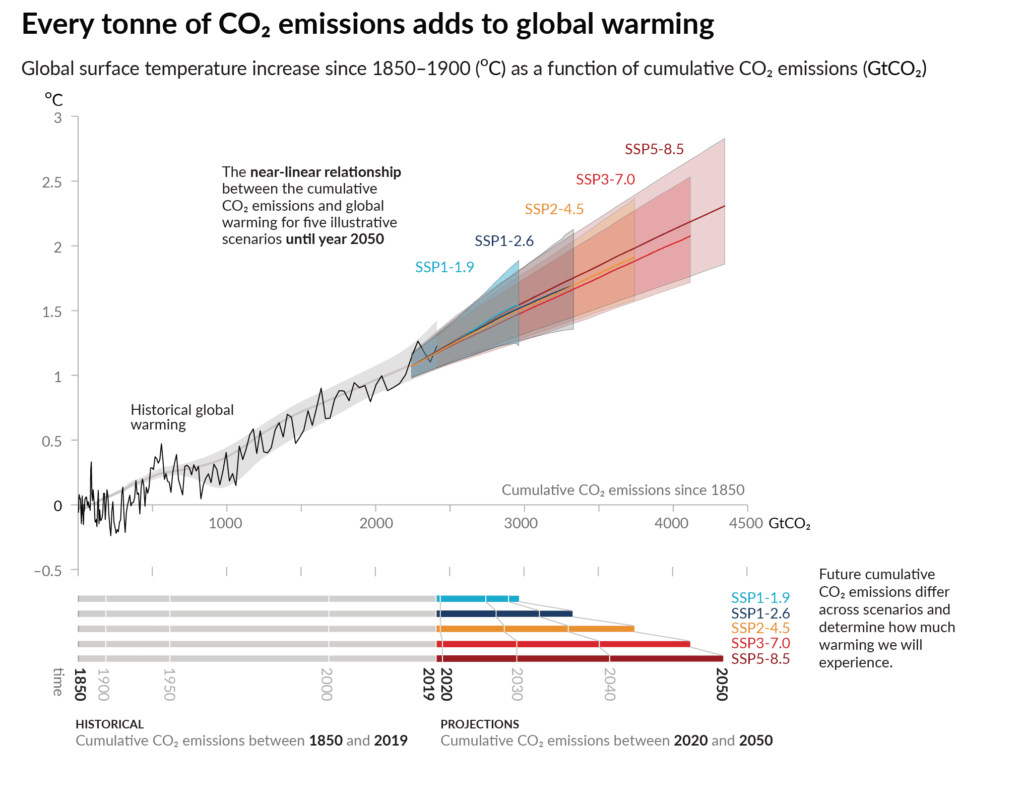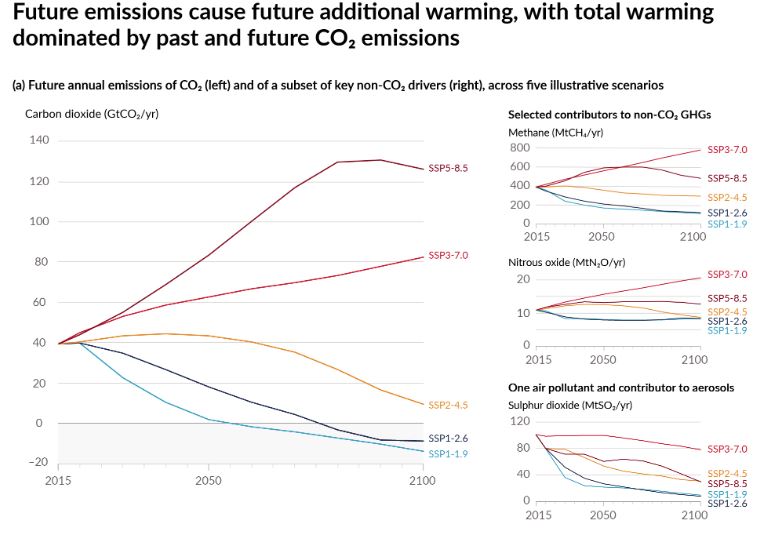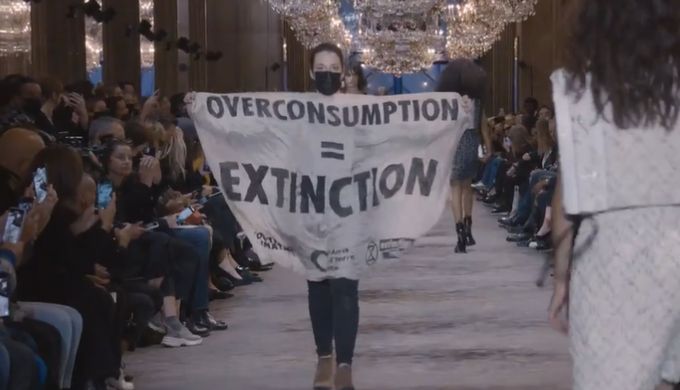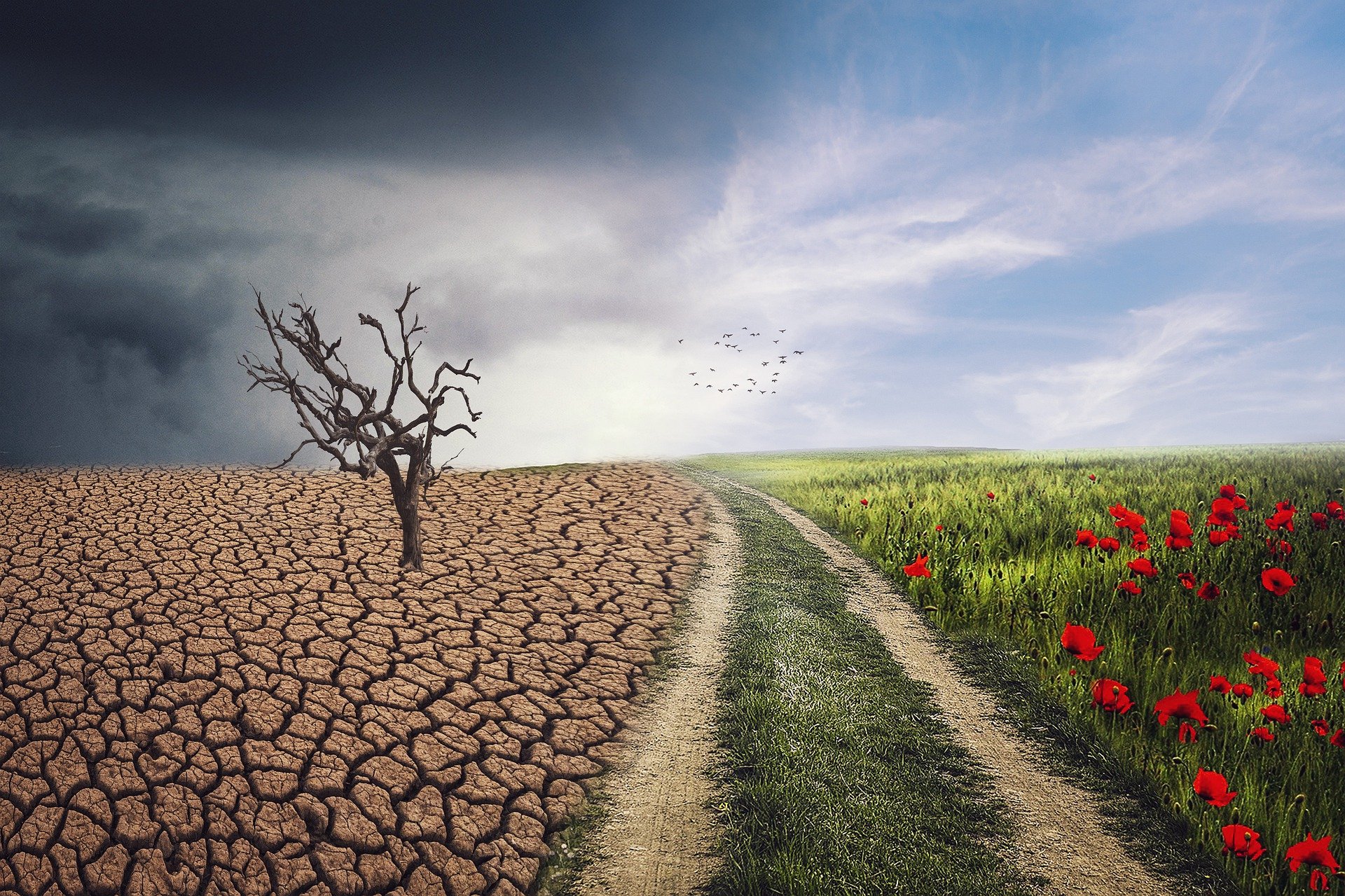“We’re screwed”, “It’s dead”, “It’s the end”…
These reactions are daily and understandable: the environmental situation is really catastrophic.
But fatalism is as dangerous as techno-optimism. In other words, believing that nothing can be done and evoking the climate apocalypse at every turn is as dangerous as believing that a saving technology will solve everything.
The first thing to do is to present the facts. For that, we havethe latest IPCC Working Group 1 report, the most comprehensive update of the state of scientific knowledge and physical understanding of the climate. The second is not to misrepresent them: not to exaggerate them, not to minimize them, not to interpret them for political purposes. The changes needed are huge and will not be easy, especially if they are not accompanied by just social policies.
Yes, there is bad news. Every day. But there is also positive news, and reasons to take action.
Fatalism as inaction
The situation is disastrous. Anyone who has spent a few hours learning about climate change and the collapse of biodiversity will tell you that. But it is wrong to say that we are already doomed. Doomism is one of the 12 speeches of climate inaction that must be fought.
It is of course too late to prevent damage (social, and environmental..). But there is no point in having a speech that exaggerates what science tells us about the climate (even if it has a lot of success). Avoiding fatalism is a necessary condition if we want to reach our climate objectives. Let’s also remember two elements of language that come up very often and that we must absolutely avoid:
- There is no deadline. It is not in 2030 on the dot (or 2040) that the world is going to fall into an apocalypse. Besides,having a precise date makes no sense in climate science, which is a science of a long time. Yes, it was better to act 20 or 30 years ago. But just because we haven’t acted in 2025 or even 2030 doesn’t mean everything is over. The idea is that the later we act, the more catastrophic it will be (with nice feedback loops to help with it).
- If we fail to keep the warming at +1.5°C, the next target is not +2.°C, but +1.51°C.The IPCC is very clear on the subject: every ton emitted contributes to warming. If you don’t know which actions have the most impact on global warming, calculate your carbon footprint.

Source: Fig.10 SPM AR6
Our climate future is in our hands
This new report of the IPCC Working Group 1 brings many confirmations, some bad news… but also some encouraging news. No, “all is not lost, we are not all going to die”. We have our climate future in our hands, it is up to us to drastically reduce our emissions, quickly, and in a sustainable way.
We can see in the 5 different SSP (Shared Socioeconomic Pathways) scenarios below that everything depends on the political choices we make! Future emissions will lead to an additional increase in warming, which will therefore result from the addition of past and future CO₂ emissions.

across 5 significant scenarios.
Source : Fig.4 SPM AR6
Changes will be seen quickly!
This is most certainly the most repeated error: “the climate of the next 20 or even 30 years is set in stone“. It is false, and as usual, a little more complicated than that. To explain it, we have translated with Christophe Cassou an excellent article by Zeke Hausfather, where he explains this:
The best available knowledge shows that, on the contrary, warming should more or less stop when carbon dioxide (CO2) emissions are zero, which means that humans have the power to choose their climate future. When scientists recently highlighted this result, it was reported as a new scientific discovery. However, the scientific community has recognised since at least 2008 that zero CO2 emissions probably imply stable temperatures in the future.
It is urgent that those who popularise climate issues take this into account. Before being a problem of physical inertia, it is above all a problem of political and social inertia. This inertia is the consequence of two facts: both of people who emit emissions without knowing the consequences, but also of completely irresponsible business and political leaders doing everything to perpetuate this deadly economic system.
It is certain that many changes due to past and future greenhouse gas emissions are irreversible for centuries, even millennia, including changes in the oceans, ice caps, and global sea levels. But some changes can be slowed and some stopped by limiting global warming.
NEWSLETTER
Chaque vendredi, recevez un condensé de la semaine, des infographies, nos recos culturelles et des exclusivités.
+30 000 SONT DÉJÀ INSCRITS
Une alerte pour chaque article mis en ligne, et une lettre hebdo chaque vendredi, avec un condensé de la semaine, des infographies, nos recos culturelles et des exclusivités.
Yes, but the Chinese and Africans…
The question underlying these first points is: why act? Is France not an exemplary country, as some politicians and influential people love to repeat? “France is only responsible for 1% of emissions”
Let’s first recall some figures: on average, each French person emits 6.5 tons of CO2eq/year on the territory, but also a carbon footprint of10t CO2eq/year. Not only do we have to divide our footprint by 5 to respect our climate commitments, but we are also well above the world average of 7.5 t CO2eq/year. Finally, France is not so exemplary as that…
"Quand on émet 1% du CO2, je veux dire, on peut se détendre"
— Bon Pote (@BonPote) September 23, 2021
"NON, y a pas de problème écologique. Pas pour nous. Pas en France".
D'un côté, le GIEC, le HCC. Le réchauffement climatique, l'effondrement de la biodiversité.
De l'autre, l'analyse d'Emmanuel Lechypre. pic.twitter.com/12hahL0iAg
If, in addition to these first elements, we take into account the historical responsibilityand the financial means we have at our disposal, there is no room (nor excuse) for inaction. In other words, those who spend their time accusing the Chinese and Africans of all the evils do not do so on scientific grounds but on ideological grounds.
To learn more about the discourse of climate inaction, this article will be particularly useful (for demography, the work of Emmanuel Pont is particularly enlightening).
But then, how to act?
The very good news is that there is not one, but a million ways to act for the environment. If someone tells you that there is a single solution that will solve everything, he or she must be a charlatan.
We know that every ton contributes to global warming. The first thing would certainly be to know what has the most impact in our daily lives, via a carbon footprint calculator. The day the IPCC report was released (which, let’s not forget, does not recommend anything), I made some suggestions:
Le rapport du GIEC est très clair : la situation est catastrophique, mais on peut empêcher le pire avec :
— Bon Pote (@BonPote) August 9, 2021
– moins d'avions
– moins de viande
– moins de voiture
– plus de sobriété
– ne plus accepter la passivité des gouvernements.
L'inaction climatique est criminelle.
In addition to being solutions that can all be justified by scientific papers, they are mostly common sense proposals. In its summary for policy-makers, the IPCC has also emphasized methane, a powerful greenhouse gas that is mainly the result of our meat diet:
“Limiting human-induced global warming requires strong, rapid, and sustained reductions in CO2, methane, and other GHGs. This would not only reduce the consequences of climate change but also improve air quality.
There are many other actions that we can take to co-benefit our health, our economy, and the well-being of our citizens. Of course, let’s be careful not to put the responsibility for emissions solely on citizens: politicians and companies also have their share of responsibility.
The perfect solution does not exist
Last but not least. Every time you criticize the society we live in today, you will be asked for a perfect solution, with a perfect plan, flawless down to the smallest detail. All this of course required on the spot, and if you don’t have it, your proposals and solutions are not understandable.
This is also one of the most recurrent speeches of climate inaction: “if it’s not perfect, then we don’t want it“! Let’s remember that criticizing the current system is not common, and recognizing that it is incompatible with climate objectives and more globally with a sustainable economy is certainly not perceived as such, for the moment, by a majority of French people.
This is why it is essential to make a complete inventory of the situation and to share it with a maximum of people. As long as the problem is not correctly adressed and known by a majority, we will have no chance to solve it. We must collectively prioritize the issues and make it clear that all sectors, without exception, must change.
The last word
The scientific literature is very clear: we have our climate future in our hands. Our individual and collective actions can bring about changes that will benefit us quickly.
It is certain that the necessary changes will not come easily. The current situation is even likely to get worse, as with the criminalization of climate activists, for whom justice is getting tougher (while leaving alone others who are defrauding (“optimizing”) at about 11 trillion euros).
But there are signs of a shift in attitudes. A recent example might be the environmental activists who attended the Louis Vuitton fashion show during Paris Fashion Week to denounce the climate and social impact of the fashion industry. For the first time, the vast majority of comments on social networks were…positive!

Usually, activists are systematically insulted, and a lot. This was not the case here, including in the foreign press. Public opinion and social acceptance are variables that can change very quickly. If someone had told us in December 2019 that a few months later we would all be obliged to wear a mask to protect ourselves from a virus, we would surely have taken the person for a lunatic, saying that this would never be accepted by the population. And yet…
If it wasn’t already clear: defeatism, even if it is understandable, will not solve anything and will only make the situation worse. We have (each at our level) the means and the duty to act. It is now relatively easy tolearn about the subject, for those who wish to really invest themselves and take action. It is urgent that the discussions focus a little more on how to solve climate change than on the choice of our children’s names.
















